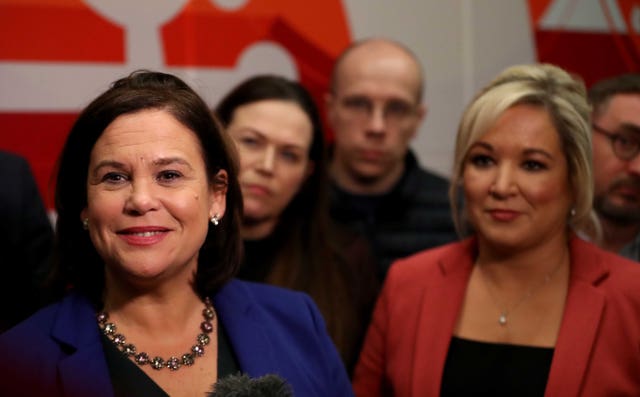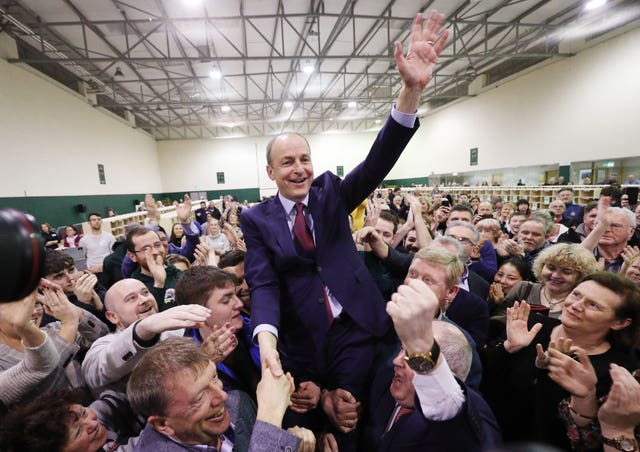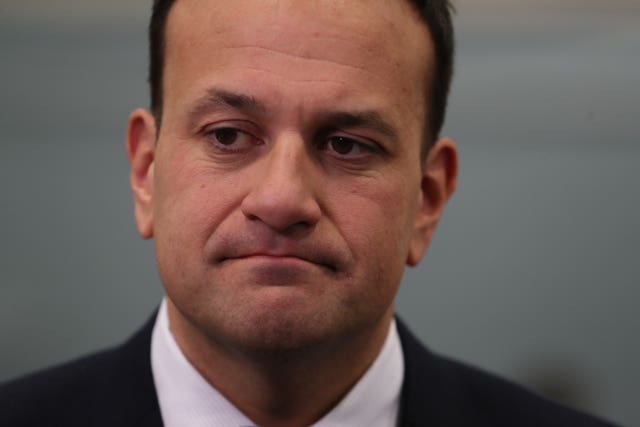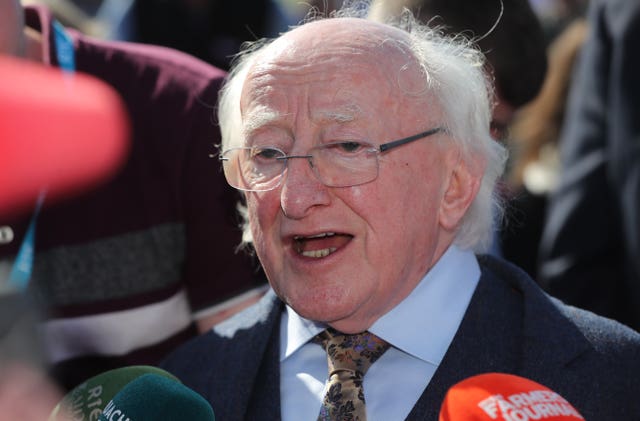Sinn Fein assessing coalition options
Mary Lou McDonald wants to lead a government of other left-wing parties – but the numbers may be against her.

Sinn Fein is working to establish the viability of a left-wing coalition government in Ireland.
In the wake of a stunning election result, leader Mary Lou McDonald is meeting with smaller parties on Wednesday and is engaging with a range of independent TDs to see if she has the numbers to assemble a workable administration.
It remains highly doubtful Ms McDonald can garner enough partners to reach the magic number of 80 TDs to command a majority in the Dail parliament.

Smaller parties and groupings such as the Greens, Labour, the Social Democrats and Solidarity/People Before Profit, and a sizeable number of independent TDs, have spoken to Ms McDonald and her party as she seeks junior coalition partners.
Many believe it will be impossible to form a government without the involvement of one of either Fianna Fail or Fine Gael, the two long-time big beasts of Irish politics.
A coalition of Fianna Fail, Sinn Fein and the Green Party – which ended with 12 seats – is seen as a potentially more realistic option.
Fianna Fail emerged from the election as the largest party by the narrowest margin over the surging Sinn Fein.
Micheal Martin’s party finished with 38 seats to Sinn Fein’s 37 at the end of two days of counting.
But given the Fianna Fail speaker was re-elected without contest, both parties essentially “won” the same number of seats.
Sinn Fein TD and newly appointed head of the party’s negotiations team Pearse Doherty said on Wednesday: “We have reached out to the Social Democrats, the Green Party, People Before Profit and Labour.
“Mary Lou will begin that process tomorrow by meeting with a number of those parties.
“We have said consistently we will meet with all parties to look at delivering real change for people.
“Some of those meetings are scheduled to take place tomorrow.”
Despite being edged in seat numbers, Sinn Fein is undoubtedly the party with most to celebrate, having smashed Ireland’s long-standing two-party system.
Mary Lou McDonald’s party triumphed in the popular vote and may have won many more seats – potentially an additional 11 – if it had fielded more candidates in the landmark contest.
As such, momentum is behind her in taking the first steps in what could be a long and tortuous process to form a new government.
She has predicted she could be Ireland’s next taoiseach.

“The numbers of that are going to be tight,” he told RTE’s Morning Ireland.
“But we have an obligation, and Mary Lou McDonald has already set this in train, to talk to the progressive parties that were clearly part of the mandate for change.”
Despite receiving the most first preference votes, Sinn Fein’s place in the next government is not guaranteed.
All three major parties are far short of the 80 seats required for a majority so, barring another election, some form of coalition is inevitable.
Either Fianna Fail or Fine Gael may be forced to back-track on long-standing pledges never to do business with Sinn Fein.
There appear to be differing views within Fianna Fail, with some members remaining opposed to any alliance with Sinn Fein and others more open to the prospect.
Mr Varadkar has maintained his pre-election stance and ruled out any Fine Gael/Sinn Fein coalition.

Sinn Fein received 24.5% of the vote share on first preference in Saturday’s election, Fianna Fail got 22.2% and Fine Gael 20.9%.
The final breakdown of the 160 seats was Fianna Fail 38, Sinn Fein 37, Fine Gael 35, Greens 12, Labour 6, Social Democrats 6, Solidarity/People Before Profit 5, Aontu 1, Independents4Change 1 and independents 19.
Mr Varadkar’s last government, a minority Fine Gael-led administration that included several independent TDs, was sustained in power through a historic confidence and supply arrangement with Fianna Fail.
That pact between two parties founded from opposing sides of Ireland’s civil war of the 1920s took 70 days to negotiate following the inconclusive 2016 general election.
It looks unlikely that either party will countenance a similar arrangement this time round.
Ireland’s President Michael D Higgins said it is “important to be positive” as the political parties enter discussions.

“I want to wish all of the people who will be having discussions with each other every success.
“Whatever they decide, we are obviously facing into a period in which the European Union is redefining itself on several levels and we are moving into some of the most complex parts of the trade agreement with our neighbours through Brexit.
“There are huge international issues as well. The themes standing in every background of every politician alive are issues of climate change and loss of biodiversity.
“I wish them every success with the different options that they have.
“Obviously at different times, at the appropriate time, people will visit me at the Aras (an Uachtarain). I will give my blessing for however long it lasts.”





